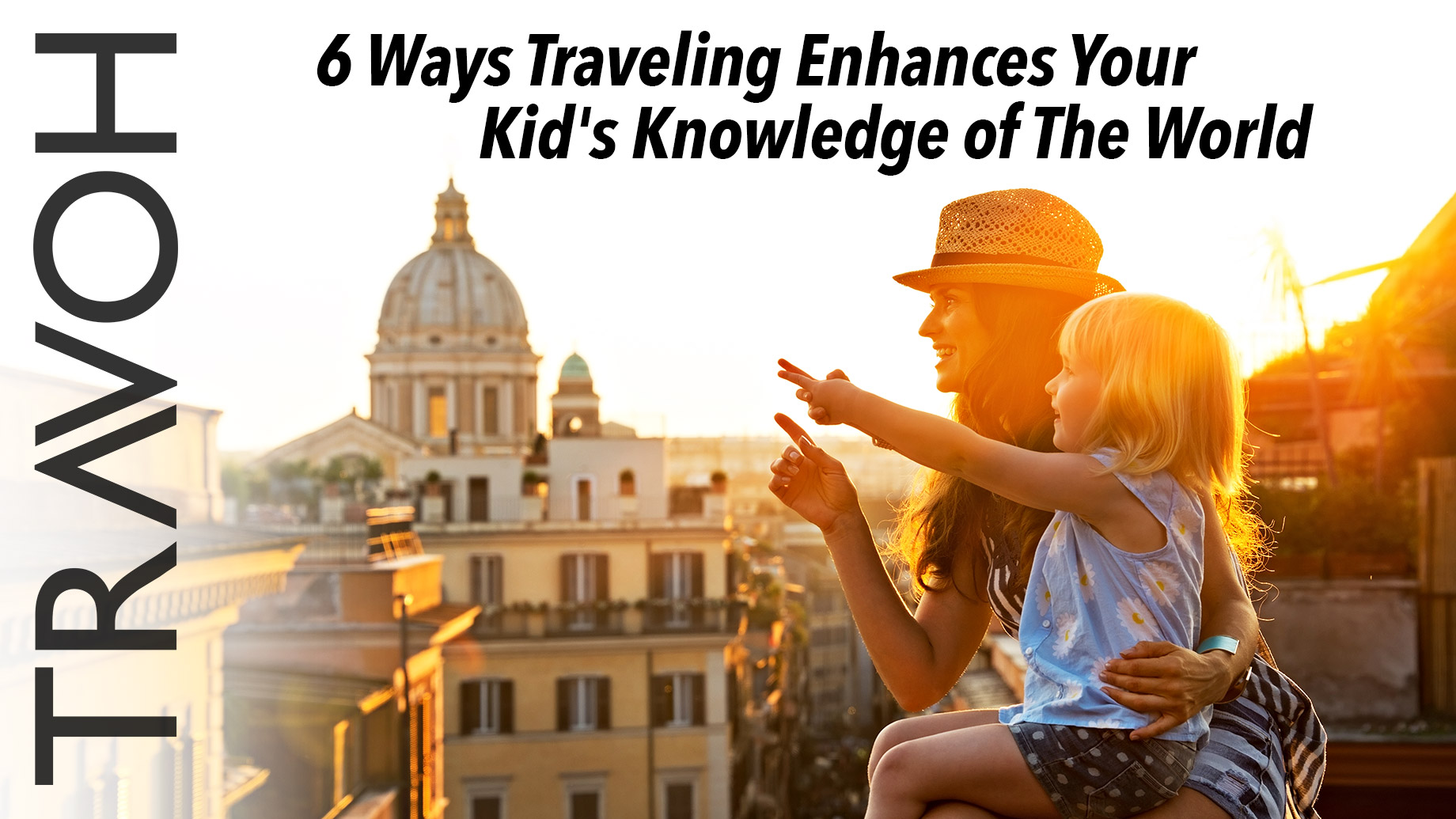
Traveling is a wonderful way to broaden children’s horizons and enhance their understanding of the world. It offers unique learning experiences that go beyond the confines of a classroom. Places within the United States, such as Sevierville, Tennessee, are ideal destinations for family trips that combine fun with education. These trips provide children with opportunities to learn about different cultures, history, geography, and more, all while having a great time with their families.
Taking children to various destinations helps them develop cognitively and socially. By exposing them to new environments, people, and experiences, travel can significantly contribute to their personal growth. This article explores six ways traveling can enhance your child’s knowledge of the world.
1. Exposure to Different Cultures
Traveling exposes children to diverse cultures and ways of life, helping them understand and appreciate cultural differences. When children visit new places, they encounter various traditions, languages, foods, and customs. This exposure is crucial for developing cultural sensitivity and empathy, which are important skills in today’s globalized world.
Participating in cultural festivals, visiting museums, and exploring local markets are excellent ways for children to learn about different cultures. These activities allow them to see firsthand how people live in different parts of the world and understand the historical and cultural contexts that shape their lives. Such experiences can foster open-mindedness and respect for diversity, laying the foundation for becoming well-rounded individuals.
2. Interactive Educational Experiences
Interactive and immersive experiences are incredibly valuable in learning because they engage children in a hands-on manner. Attractions that combine fun with education, like XPERIA: Ocean Journey in Sevierville, are perfect examples. This family-friendly digital experience transports visitors into the depths of the ocean without getting wet. It’s an innovative adventure combining a walk-through experience with immersive storytelling, interactive features, and CGI animation.
Such experiences spark curiosity and provide children with a deeper understanding of marine life and ocean ecosystems. These interactive environments allow kids to learn in an engaging way, making complex subjects more accessible and enjoyable. They can ignite a passion for science and the natural world, encouraging children to explore these subjects further.
3. Learning History and Geography
Traveling offers children the chance to learn about history and geography in a tangible and impactful way. Visiting historical sites, landmarks, and natural wonders brings these subjects to life far more effectively than reading about them in textbooks. When children see and experience these places firsthand, they gain a deeper understanding and appreciation of the world’s history and geography.
Using maps and guides during trips can also enhance children’s geographical knowledge. Parents can teach their kids how to read maps, understand geographical features, and learn about the historical significance of different locations. This hands-on approach makes learning more engaging and memorable, helping children retain information better and develop a genuine interest in these subjects.
4. Developing Social Skills
Traveling helps children develop essential social skills through interactions with new people in diverse settings. When children travel, they meet other people from various backgrounds, which can help them learn how to communicate effectively and build relationships. These interactions are invaluable in teaching children social etiquette and empathy as they experience different social norms and practices.
Participating in group activities during travel, such as guided tours, workshops, or family-oriented events, provides children with opportunities to practice these skills. Staying in family-friendly accommodations can also offer chances for children to make new friends and engage in social play. These experiences enhance their social confidence and ability to navigate new social situations, contributing to their overall social development.
5. Encouraging Environmental Awareness
Traveling offers a unique opportunity to teach children about environmental conservation and sustainability. Visiting national parks, wildlife sanctuaries, and nature reserves allows children to witness the beauty and diversity of the natural world. These experiences can help them understand the importance of protecting the environment and the impact of human activities on ecosystems.
Activities like hiking, bird watching, and participating in conservation projects can instill a sense of responsibility towards the environment. Learning about endangered species and their habitats can make children more aware of the challenges facing wildlife and the need for conservation efforts. By fostering a connection with nature, travel can encourage children to adopt eco-friendly habits and attitudes, contributing to their environmental consciousness.
6. Enhancing Problem-Solving Skills
Traveling encourages children to develop and refine their problem-solving skills. Being in new environments often presents unexpected challenges that require quick thinking and adaptability. Whether it’s navigating a new city, figuring out how to use local transportation, or communicating in a different language, these experiences teach children to think on their feet and come up with solutions independently.
Involving children in planning and decision-making during the trip can also enhance their problem-solving abilities. Allowing them to help choose destinations, plan activities, or manage travel itineraries encourages them to think critically and make informed decisions. These experiences can improve their confidence in handling various situations and prepare them for future challenges, both in travel and in everyday life.
7. Fostering Independence and Confidence
Traveling helps children develop independence and confidence by exposing them to new experiences and challenges. Involving children in travel planning, such as choosing destinations or activities, empowers them to make decisions and take responsibility. This involvement boosts their confidence and prepares them for more significant responsibilities as they grow older.
Activities that challenge children to step out of their comfort zones, like trying new foods or learning basic phrases in a foreign language, can also build their confidence. These experiences teach children to adapt to new situations and solve problems independently. The skills and confidence gained from traveling can be applied to other areas of their lives, fostering a sense of self-assurance and independence.
Conclusion
Traveling provides numerous opportunities for children to learn about the world and themselves. From interactive educational experiences and cultural exposure to learning history and geography firsthand, the benefits of travel are extensive. Additionally, traveling helps children develop social skills, environmental awareness, and personal independence. Parents can greatly enhance their children’s knowledge and personal growth by incorporating travel into their family activities. Exploring places like Sevierville and engaging in diverse experiences can make travel both enjoyable and educational, creating lasting memories and invaluable lessons for young minds.
